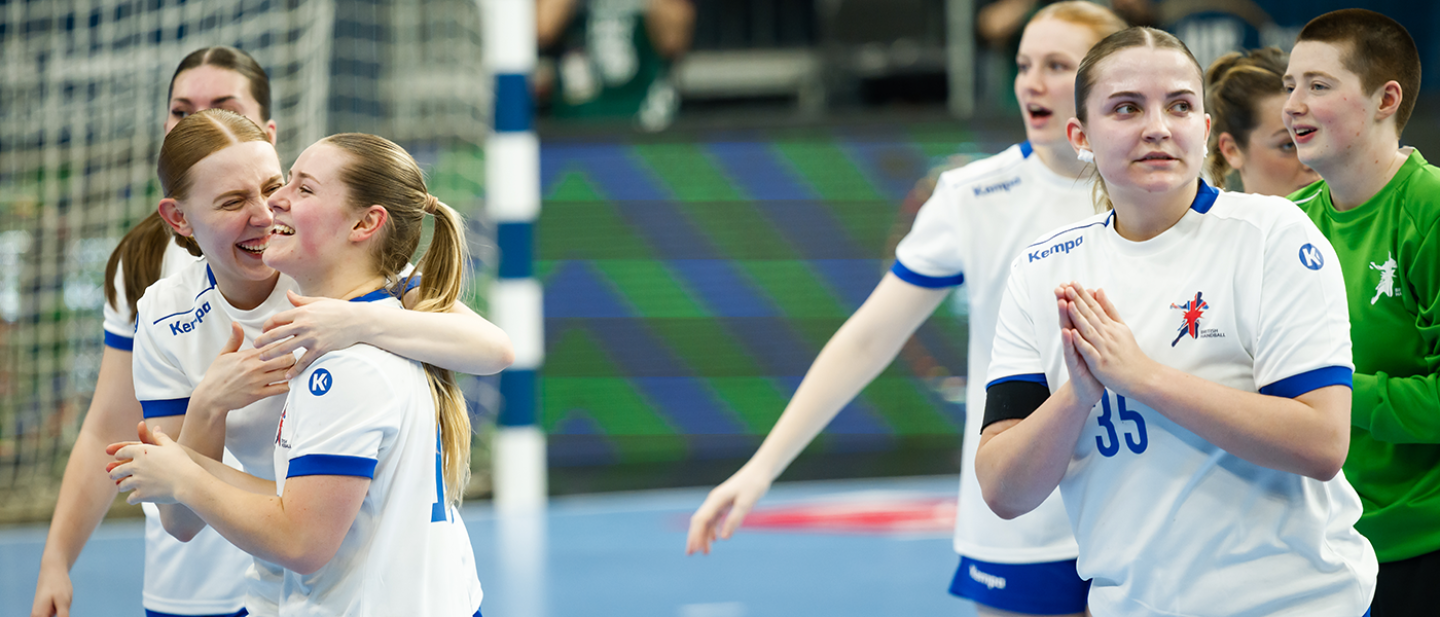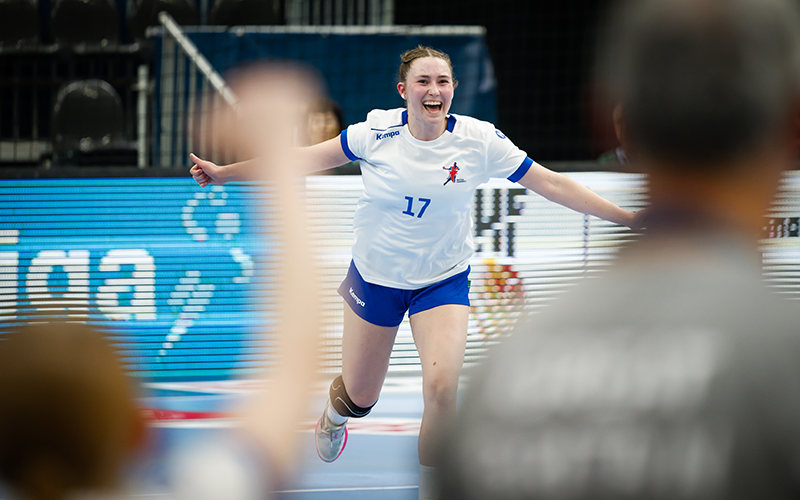News
The ultimate underdogs: Great Britain live the dream at the Olympic Qualification Tournaments
11 Apr. 2024

For the last decade, Great Britain did not feature in any Qualification match for a major international competition, before entering the fray at the Qualification Europe – Part 1 for the 2023 IHF Women’s World Championship. They conceded a painful aggregate loss against Türkiye, 30:83, but it was a stepping stone for something greater.
Then came the announcement that Cameroon could not take part in the Olympic Qualification Tournament #1, as the African side failed to comply with the visa requirements for Hungary. And Great Britain stepped in, being awarded a wild-card for the competition by the IHF Executive Committee.
“It was incredible to find out that we were going to play. All the players made the effort. It is an incredible credit to the players that within one hour everybody, from the staff to the players had said that they will be here. Everybody got to the airports on such short notice and everybody grabbed this chance to be here,” says Mark Hawkins, Great Britain women’s national team coach.
However, Great Britain are the team with the lowest age average between the 12 sides in the three Olympic Qualification Tournaments, with only one of their players, captain Marta Miroslawa Tubacka being born before 2000, with four of their players being teenagers.
For a team with little experience and an average age of 21.2 years old, facing Hungary, Sweden and Japan is a huge proposition and this was to be seen in their opener against the hosts, Hungary, which pushed the pedal to the metal and secured a lopsided 49:11 win, as Great Britain had the largest number of turnovers between the 12 sides after the first matchday, 32.
“It's a great task, it's a big task for us to be here. It still doesn't feel real almost given the 48 hours we've had, but, of course, it's a massive privilege, it's a massive honour to be here and you know we have to treat it with the respect that we should and give our best and use it to make the biggest step forward that we possibly can,” says Hawkins.
With five of the players recently featuring in the IHF Intercontinental Trophy, where the Under-20 British team lost the final against Uzbekistan, the experience of these players is limited. Some of them are still amateurs and play in the domestic league, while others are scattered around Europe, learning handball in Norway, Denmark or France.
The gap is still big, though, with only one player, pivot Heidi Warren, still aged 18, coming through the ranks of the last season’s EHF European League Women winner, Ikast Handbold, a team which was eliminated in the play-offs of the EHF Champions League Women this season.
“We have some players who have parents born abroad and they have grown up over there, but we also have players who are coming from the domestic clubs and they have the opportunity to train in the academies and this is obviously the future for us,” adds Hawkins.

“Since the Olympics in London in 2012, we have tried to start developing from the bottom and from the beginning and try to do this in a sustainable way. So a lot of these players have come through the grassroots competition that they play in schools and they have a chance now.”
Sure enough, losing a match by 38 goals is not the best result for Great Britain, but players have been satisfied of how their debut in the Olympic Qualification Tournament went, a debut also covered by the BBC, as handball got a voice in the United Kingdom with the wild-card received for this competition.
“It has been special to play here and to be here and it was really a nice experience. We have been trying to get ourselves ready, but I think we managed to do the best we could, the difference is clear between these two sides,” said GB’s centre back, Anna Rayner.
It would have been difficult for Great Britain to really exert pressure on Hungary, seeing that Vladimir Golovin’s side had experienced players like Katrin Klujber and Viktoria Gyori-Lukacs in the squad, while the British side has mostly amateur players and students in their squad. Yet Hawkins thinks this might be an excellent moment for his team to start growing.
“We have to compete with so many sports in England, where football is king and rugby and cricket and all these other sports are very popular, sports that we don't have elsewhere in Europe. But if we can get the exposure, anytime we can put ourselves forward like this then we get a massive boost for the sport back home,” concludes Hawkins.
Sure enough, Great Britain will be big underdogs against Japan and Sweden in their last matches. But with a team having to assemble from holidays and get to Hungary on such short notice, this might just be the beginning of a beautiful journey.

